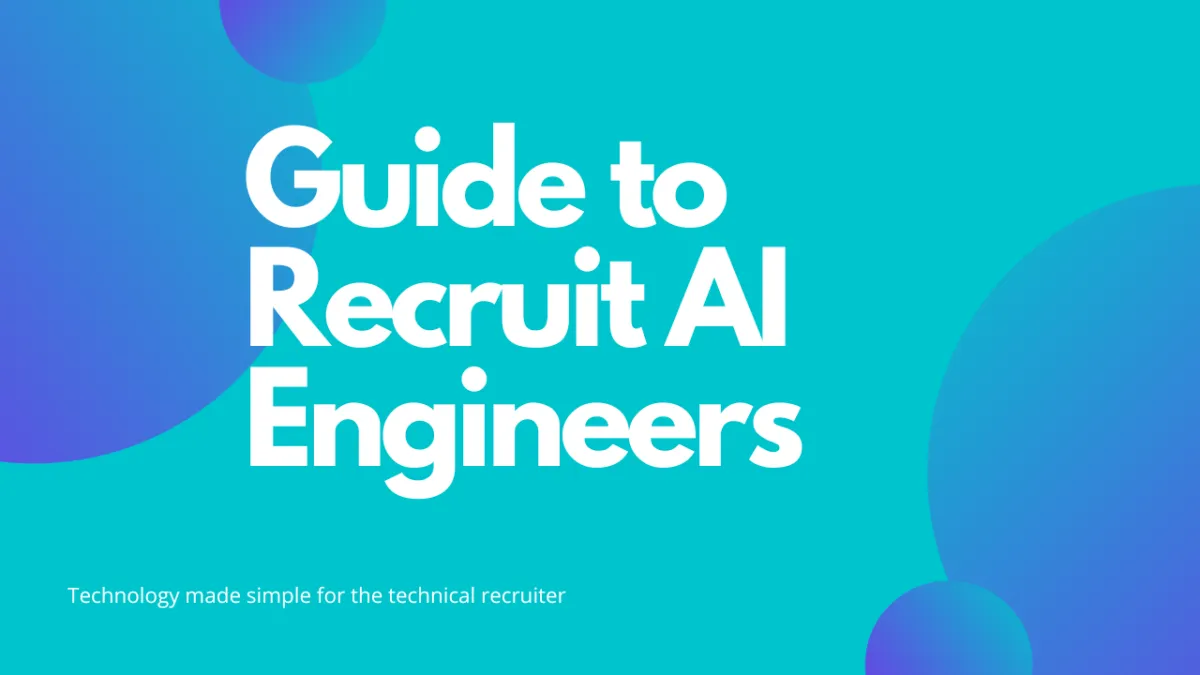
Guide to Recruiting AI/ML Engineers in the Tech Talent Landscape
Demand for Artificial Intelligence (AI) and Machine Learning professionals is rising and will continue in the foreseeable future. These professionals fall within different categories based on the skills that they have to offer and the range of roles that they can fill. As a recruiter for tech professionals, you must understand the distinct roles and responsibilities of AI/ML Engineers to stay competitive as you recruit. Here is a quick guide that will help you streamline your recruitment process and secure top talent for these specialized roles.
Action 1: Understand the AI/ML Engineering Skill Set
Write a list of the core skills required for the AI/ML Engineering position. These typically include machine learning, natural language processing, data analysis, and neural networks.
Determine the nuances for each role such as whether they are applied AI or research-focused roles.
Stay on top of industry trends and advancements.
Understand the main business goal of the organization for seeking AI/ML candidates. Your goal with this information is to identify candidates who believe in what the organization believes.
Action 2: Outline a Comprehensive Job Description
Ensure you include detailed technical requirements in a job description, including the programming languages and technical skills necessary for the job.
Amplify innovation to attract people seeking ground-breaking AI/ML projects that put them at the edge of technological advancements.
Describe the impact that the job candidate can achieve, and how their contributions will influence the growth and success of the company.
Be sure to include the organization’s goal in the job description. This will help attract the right candidates.
Action 3: Source and Screen in the Right Spaces
LinkedIn and niche job boards are the best places to start your search. Seek out those that specifically serve AI talent so that you get candidates with the right experience.
Make technical skills assessments a strict practice to validate the skills of the job candidates before you place them in a position. Coding challenges can also apply here.
Assess the project portfolios of your preferred candidates to confirm their experience and ability to solve problems.
Action 4: Conduct Well Structured Screening and Interviews
You must first learn the language of AI/ML so that you understand the answers to the questions you’re about to ask your candidates.
If you’re performing an initial screening, your questions should be more straightforward to gauge the candidate’s core skills and whether they fulfill the core requirements of the position.
If you’re performing an interview, then create a list of scenario-based questions that mirror real-world AI/ML challenges that the job candidate may come across, to determine their ability to apply skills and solve the challenges.
Whether screening or interviewing, assess their communication skills, particularly their ability to clearly explain complex AI/ML concepts to non-technical individuals they may encounter in the workplace.
Their responses should give you confidence.
Be sure to assess specific skills, like algorithmic thinking or similar skills required by the hiring manager.
Action 5: Focus on the Long-Term Potential of the Candidate
Where candidates must work in teams, assess their ability to collaborate effectively, and work in cross-functional scenarios.
Determine their ability to learn, and how motivated they are to stay current with the advancements in AI/ML. Also, find out whether they are looking to upskill in the future.
Mindset makes a difference, and you should seek candidates with a growth mindset since this indicates that they are willing to embrace challenges.
To effectively recruit AI/ML engineers, you need a strategic approach and to seek out balanced candidates who have technical skills and can culturally align with a company. AI is the present and the future, so you must recruit candidates who form solid building blocks and will contribute to AI innovation.
Copyright 2024 © Simple Tech Book - All Rights Reserved.
